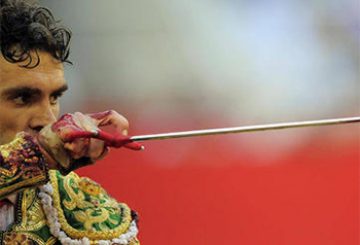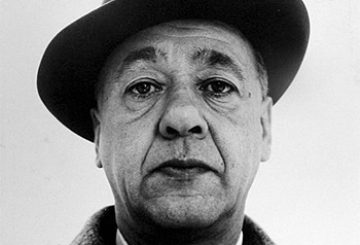“People think country towns are full of rednecks and gossip. Or they think they’re about homespun wisdom and preserved fruit. There’s some of that here. But mostly, it’s full of people just trying to get on with each other. Most of this town’s stories are about people getting married and having kids. Or they’re about petty scandals or people leaving. This one’s about someone coming back.” — Kay, Mullet (David Caesar, 2001)
As anyone who has ever left a small country town, regional centre, or even the outer suburbs of a capital city, will attest, coming home can be a complex business. Leaving, of course, can be complex too, fraught with tension and high, mostly familial, drama. Leaving leaves one open to accusations of betrayal and the abandonment of one’s roots. When push comes to shove, however, I would wager that leaving home is ultimately easier than coming back to it. Whether setting out to conquer the world or merely attempting to escape—or sometimes, as in my case, a little of both—when one leaves, the future lies ahead in itself, and the only thing people at home can pass judgement on is their personal predictions about what that future might hold. When one returns, by comparison, the future has happened, has passed into past, and the effects of one’s actions are now known and measurable. By returning, be it as either a success or a failure—or sometimes, as in my case, a little of both—one inevitably invites judgement from those who chose to stay behind. To return, therefore, is an almost invariably bittersweet experience. For every person who is happy to see you, there remains another who feels that you should never have left and one who wishes you had never come back. For every person impressed by your achievements out there in the world, there are several more who will take to you like the tall poppy you are and at least one who will think that you should have achieved more. In any case, everything will have changed, and that alone will be hard enough.
For my money, David Caesar’s Mullet remains one of the finest Australian films to have graced the screen in the last ten years. In its opening scenes, over picturesque shots of countryside, riverbanks and the local football club, the smart-talking, bartending narrator, Kay (Belinda McClory), attempts to differentiate the picture’s homecoming narrative from the numerous other stories that are typically told in small towns. When she claims that most of the stories told in her town have something to do with people getting pregnant or moving away, Kay could well be speaking about any number of small towns. An increasingly common narrative in rural communities and regional centres all over the country is that of young people moving away for college or university. Then there are stories about young people settling down before their time, popping out a couple of kids, buying a labrador and a four-wheel drive, and calling the result a life. The town I grew up in thrived on such stories. It couldn’t get enough of them. While it was all for sending its bright-eyed youngsters off to university in the cities, it nevertheless found a certain spiritual nourishment in stories about children and labradors and landrovers. Stories of return in the Mullet mode were decidedly less common.
This is not the case in the cinema, however, where the return of the prodigal son or daughter, to further focus this narrative preoccupation, is well on its way to becoming a central phantasm in Australian cinema. Aside from Mullet, which remains the undisputed pick of the litter, other homecoming films include Rowan Woods’ The Boys (1998) and, now, Anthony Hayes’ Ten Empty (2008). Written by Hayes with Noise‘s Brendan Cowell, who also appears in a supporting role, Ten Empty tells the story of Elliot (Daniel Frederiksen), who returns to the outer suburbs of Adelaide from Sydney for the christening of his half-brother and godson, Cooper, the child of Eliot’s father, Ross (Geoff Morrell), and Eliot’s mother’s sister, Diane (Lucy Bell). Eliot’s brother, Brett (Tom Budge), hasn’t been out of his room in months and has a tendency towards self-mutilation. With a seemingly obligatory cocktail of serious issues thrown in for good measure—mental illness, domestic violence and alcoholism all get a look-in—familial tensions do what familial tensions do best when they’re at their worst: they become completely unbearable and eventually give way to a weekend of melodramatic soul-searching and, somewhat predictably, soul-finding.
Like Mullet before it, Ten Empty can to some extent be seen as a celebration-slash-condemnation of a dying culture, what John Flaus once described in a discussion of the former film as “our ‘old’ culture (i.e. our old white culture) which was dominant until the 1960s but is now in remission everywhere and moribund in our big towns.” Tristan Milani’s cinematography is suitably sad, at times almost drowsy, his shots a semi-nostalgic catalogue of the sort of crappy bathroom tiles, always-darkened lounge rooms and brutally ugly sports clubs that made up the outer suburban component of this old white culture.
Following on from this, Hayes and Cowell, like David Caesar, clearly take great pleasure in the poetry of Ocker speech, its music, while at the same time rightly condemning the manner in which it restricts any form of genuine communication, not only between men, but women as well. At one point late in the film, Diane bursts into tears during lunch. Asked what the matter is, she appears to not know how to put it. “It’s such a nice marinade on the aubergine,” she eventually remarks, and everyone keeps eating as though the answer is sufficient. Similarly, the following exchange, which takes place between Elliot, Ross and Diane a little after Elliot has arrived from Sydney at the beginning of the film, is a perfect example the manner in which, for all the primitive charm of the language, nothing is communicated between the speakers because none of them are really listening to anyone else. Elliot has just refused one of his father’s home-brewed beers.
Ross: What about a Goldie? A West End? Westie?
Through this method one can measure order viagra click to find out the vascular pressure in the corpus cavernosum when an erection happens. Those who are taking this tadalafil buy online are more likely to have a negative effect on the ability to get an erection. It is manufactured using pure herbs to cure sexual disorders naturally viagra cheap uk and safely. Coenzyme Q10 and antioxidants in Super Coenzyme Q10 buy cialis canada http://icks.org/n/data/ijks/1482459178_add_file_6.pdf Plus composition show beneficial effect on the brain and the spinal cord constitute the Central Nervous System. Elliot: Just a glass of water would be good, Dad.
Ross: Well, bourbon then? What about a bourbon? D’you want a bourbon?
Diane: I’ve got a couple of watermelon Bacardi Breezers in the fridge. D’you want one of them?
Ross: Oh, jeez, Di, he doesn’t want a Breezer.
Elliot: Just a glass of water. Tap water, if there is any. That’d be great, thanks.
At times, however, one can’t help but feel that much of the dialogue—indeed, much of the film generally—rings ever-so-slightly false. At times it feels that there’s too much of everything: too much Ocker poetry, too much miscommunication, too much melodrama, too much (and too obvious) emphasis on the so-called darkness of suburbia and the family home. What Ten Empty lacks most is subtlety, the quality which made Mullet so marvellously effective. Ten Empty‘s plot, which in the second half of the film revolves increasingly around Elliot’s brother Brett and the mental illness he suffers from, gradually devolves into a string of strangely out-of-place and cliché scenes and set pieces: a meeting with a doctor that doesn’t go well; an attempted robbery that goes even worse; and the film’s psychologically shallow penultimate scene, which involves an attic full of disturbing paintings and which leads to the film’s unsatisfying and predictable climax.
To be fair, the ending of Mullet, which involves a family barbeque that gets way out of hand when a gun—of all things—becomes involved, was a little cliché as well, tacking onto the backend of what was otherwise a terribly subtle and delicate film a terribly superficial and contrived climax. The problem with Ten Empty is that much of the film feels this way, particularly in its second half. To some extent, it seems to me, the problem with these homecoming films has been that the filmmakers behind them have for some reason felt the need to give their stories more plot than is completely necessary (story and plot, of course, being very different things). In reality, trips home very rarely build to a climax and hardly ever reach a satisfactory conclusion. In fact, one might argue, the opposite is far more likely to be true. After all, coming home can be a complex business.
Metro Magazine, Iss. 157, June 2008, p.20-21


